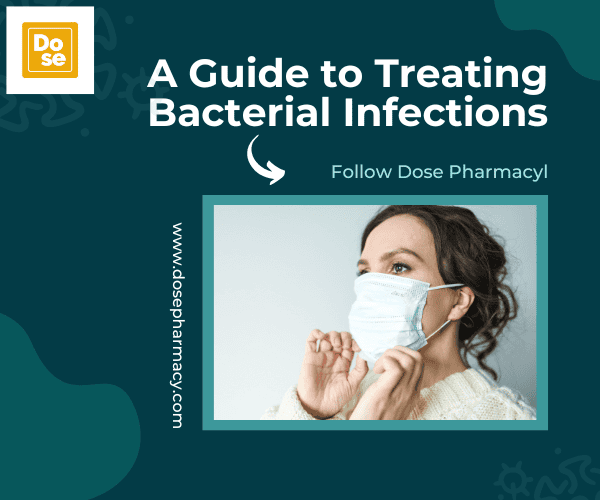
Parasitic Infestations and the Medications Used for Treatment
Parasitic infestations are a common global health problem, affecting millions of people every year. These infestations occur when parasites—organisms that live off their hosts—invade the body. Parasites can infect various parts of the body, causing a range of symptoms and health issues. Fortunately, there are effective medications available to cure parasitic infestations. In this blog, we will explore the types of parasites, symptoms of infestation, and the most effective medications used to treat these conditions.
Types of Parasitic Infestations
Parasitic infections are caused by a variety of organisms that can be classified into three main categories:
- Protozoa: These are single-celled organisms that can live and multiply in the human body. Protozoa can be transmitted through contaminated water, food, or insect bites. Examples include Giardia, which causes giardiasis, and Plasmodium, which causes malaria.
- Helminths: These are large, multicellular organisms, often referred to as worms. Helminths include roundworms, tapeworms, and flukes. They are typically transmitted through soil, undercooked meat, or contaminated water. Common helminth infections include ascariasis, hookworm infection, and tapeworm infection.
- Ectoparasites: These parasites live on the surface of the host, such as the skin or scalp. Common examples include lice, fleas, ticks, and mites. Ectoparasites can cause conditions like scabies and head lice infestations.
Common Symptoms of Parasitic Infestations
The symptoms of a parasitic infestations depend on the type of parasite and the part of the body it infects. However, there are some general symptoms that may indicate the presence of parasites:
- Abdominal pain and bloating
- Diarrhea or constipation
- Fatigue and weakness
- Weight loss despite normal eating habits
- Itching or rash, particularly in cases of skin infestations
- Anemia, due to blood loss from parasites like hookworms
- Fever, in cases of malaria or other protozoan infections
If left untreated, parasitic infections can lead to severe complications, such as malnutrition, organ damage, or chronic gastrointestinal issues. Therefore, timely diagnosis and treatment are critical.
Diagnosing Parasitic Infestations
To diagnose a parasitic infection, healthcare providers typically rely on a combination of medical history, physical examination, and laboratory tests. Common diagnostic methods include:
- Stool tests: These are used to detect the presence of protozoa or helminths in the digestive tract.
- Blood tests: Certain parasites, like malaria-causing Plasmodium, can be detected through blood samples.
- Skin scraping: For ectoparasites like mites, a small sample of skin may be scraped and examined under a microscope.
- Imaging tests: In rare cases, imaging tests like X-rays or ultrasounds may be used to locate parasites in the body.
Once a parasitic infestations is confirmed, the appropriate medication can be prescribed.
Medications for Treating Parasitic Infestations
Various medications are used to treat parasitic infestations, each targeting different types of parasites. Below, we will discuss some of the most commonly prescribed drugs for treating parasitic infections.
1. Albendazole
Albendazole is an antiparasitic medication primarily used to treat helminth infections. It is particularly effective against roundworms, hookworms, whipworms, and tapeworms. Albendazole works by inhibiting the parasites’ ability to absorb sugar (glucose), eventually leading to their death.
Uses of Albendazole:
- Ascariasis (roundworm infection)
- Hookworm infection
- Hydatid disease (tapeworm infection)
- Neurocysticercosis (tapeworms in the brain)
Dosage: Albendazole is usually taken as a single dose, but the treatment course may vary depending on the type of infection. For example, in cases of neurocysticercosis, a longer treatment period is often required.
Side Effects: Common side effects include nausea, vomiting, and stomach pain. In rare cases, it may cause liver issues or a drop in blood cell count, so regular monitoring is recommended during prolonged use.
2. Mebendazole
Mebendazole over the counter is another widely used anti-helminthic medication, particularly effective against pinworms, whipworms, and hookworms. Similar to Albendazole, it works by preventing parasites from absorbing glucose, which they rely on for energy.
Uses of Mebendazole:
- Pinworm infections
- Whipworm infections
- Hookworm infections
- Roundworm infections
Dosage: Mebendazole is typically administered in a single or double dose, depending on the severity and type of infection. For pinworm infections, a second dose may be required after two weeks to prevent reinfection.
Side Effects: Side effects are usually mild and may include abdominal pain or diarrhea. Severe reactions are rare but may involve allergic responses such as hives or swelling.
3. Nitazoxanide
Nitazoxanide is an antiparasitic medication commonly used to treat protozoal infections, such as giardiasis and cryptosporidiosis. It works by interfering with the parasite’s energy production, ultimately killing the organism.
Uses of Nitazoxanide:
- Giardiasis (caused by Giardia lamblia)
- Cryptosporidiosis (caused by Cryptosporidium)
Dosage: Nitazoxanide is usually taken for 3 days, with doses given twice a day. It is available in tablet and liquid forms, making it easier to administer to children.
Side Effects: Nitazoxanide is generally well-tolerated. Some people may experience mild gastrointestinal issues, such as nausea or abdominal pain.
4. Ivermectin
Ivermectin is used to treat a variety of parasitic infections, including both internal and external parasites. It is especially effective against strongyloidiasis (threadworm infection) and onchocerciasis (river blindness). You can buy ivermectin online from dosepharmacy that is also used to treat scabies and lice infestations.
Uses of Ivermectin:
- Strongyloidiasis
- Onchocerciasis
- Scabies
- Head lice
Dosage: The dosage of Ivermectin varies depending on the condition being treated. For strongyloidiasis and onchocerciasis, it is often given as a single dose. For scabies and lice, it may be used topically or taken orally.
Side Effects: Common side effects include dizziness, nausea, and diarrhea. In rare cases, Ivermectin can cause more severe reactions, such as allergic responses or swelling.
5. Praziquantel
Praziquantel is a medication used to treat trematode (fluke) and cestode (tapeworm) infections. It works by causing paralysis of the parasite, which then dies and is expelled from the body.
Uses of Praziquantel:
- Schistosomiasis (blood fluke infection)
- Liver fluke infections
- Tapeworm infections
Dosage: Praziquantel is typically taken as a single dose or a short course, depending on the severity of the infection.
Side Effects: Praziquantel may cause headaches, dizziness, nausea, and abdominal discomfort. More severe side effects are rare but may include allergic reactions.
Preventing Parasitic Infestations
While medications are effective in treating parasitic infestations, prevention is always better than cure. Here are some ways to reduce your risk of contracting a parasitic infection:
- Practice Good Hygiene: Wash your hands regularly, especially after using the restroom and before eating.
- Cook Food Thoroughly: Ensure that meat and fish are properly cooked to kill any parasites.
- Drink Safe Water: Avoid drinking water from unknown or untreated sources, especially when traveling.
- Avoid Walking Barefoot: Helminths like hookworms can enter the body through the skin, so wear shoes when walking on soil.
- Use Insect Repellent: In areas where insect-borne parasitic diseases are common, use insect repellent to protect yourself from bites.
Conclusion
Parasitic infestations are a widespread health issue, but with the right medications, they can be effectively treated. Albendazole, Mebendazole, Nitazoxanide, Ivermectin, and Praziquantel are among the most commonly prescribed drugs for treating various types of parasitic infections. Early diagnosis and treatment, combined with preventative measures, can help ensure a full recovery and prevent further complications. If you suspect you have a parasitic infestations, it is essential to consult a healthcare professional for accurate diagnosis and appropriate treatment.

